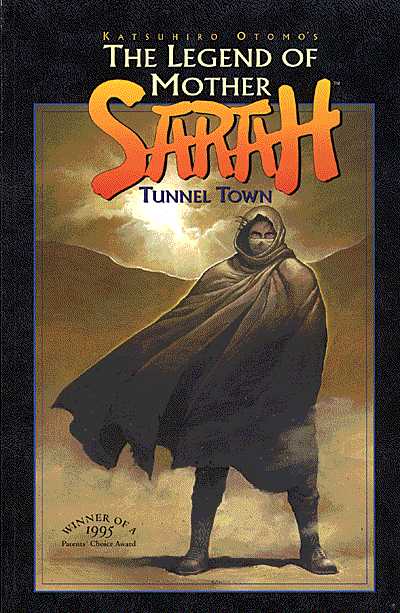 The publishers offer a glimpse of genius, but no more.
The publishers offer a glimpse of genius, but no more.
When Osamu Tezuka’s Buddha offers so many points of interest, it may see a shame to talk about how the book is published, but it matters quite a bit. The format of a book determines, to a great extent, its audience. And while publisher Vertical Comics has produced eight handsome volumes, at €100-odd euros for the set it is unlikely to reach a wider audience than its appeal might suggest.
The case with Buddha illustrates the two opposite directions in which the comics publishing industry is moving away from traditional monthly books. On the one hand the industry favours digest-format books - in an interview in Draw last year, Jay Stephens spoke about the difficulty of selling a larger formatted comic to publishers - and on the other hand it pushes the lavish absolute editions.
Coffee-table collections for the bookshop market are great for 20-somethings with disposable income, but further alienate the traditional comics readership, from which future comics creators tend to come. The distance comics publishing has come from its pulp origins reflects both changes in technology and in the cultural position of comics.
Buddha is a wonderful work, fully demonstrating Tezuka’s skills as an illustrator, designer and storyteller. Everyone interested in comics should read it. Unfortunately, Vertical has failed to understand the visual idiom of manga - the more space-intensive design of its page layouts - and has merely published one story in eight, expensive sections.
Sarah’s search for her children leads to a startling discovery
 I’m not well read in Manga (though I loved Ranma ½ and Oh My Goddess!), but even I know of Katsuhiro Otomo, the creator of Akira. So it was with interest that I read The Legend of Mother Sarah: Tunnel Town, one of Otomo’s lesser known works.
I’m not well read in Manga (though I loved Ranma ½ and Oh My Goddess!), but even I know of Katsuhiro Otomo, the creator of Akira. So it was with interest that I read The Legend of Mother Sarah: Tunnel Town, one of Otomo’s lesser known works.
Mother Sarah is set in a distant future, in which warfare has left the Earth irradiated and uninhabitable. A radical group, Epoch, has managed to tilt the planet’s axis and expose new land for settlement.
The titular Sarah scours the scattered settlements looking for the children she was separated from during the outbreak of civil war for control over the new Earth.
While the questing plot is familiar within the genre, Mother Sarah explores some unusual themes. For example, I can think of few comics that deal with motherhood or feature women in middle age (except as supporting characters).
Apart from delivering the occasional ass-kicking, Sarah’s special ‘power’ is her ability to offer motherly guidance to the two young people she befriends in Tunnel Town, a mining colony run by the fascistic government and operated by slaves/prisoners of war.
Sarah is a catalytic character; the actual protagonist is a young soldier in the totalitarian regime, who longs to prove himself to his seniors, and the young girl who looks up to him.
The squalor of war is more well-trodden ground in comics, but Sarah herself, while vaguely sympathetic to the Epoch faction and opposed to the fascists, is unconcerned with the political claims of either. Seldom are the Epoch freedom fighters portrayed in a more flattering light than the greedy fascists.
Sarah eschews explicit moral or political stances for a more general sense of compassion for all war’s victims.
Although the storytelling of Mother Sarah is simple and direct, which would seem to make it ideal for younger readers, it is super violent; everybody gets shot in the face. (There is also one panel of porn in the middle of the book, which is random.)
The artwork took a while for me to get used to. It is black and white and very low key, which allows for high detail, but could wash out the compositions. I was surprised to find the result was a flawlessly smooth read; the eye was not arrested every couple of panels or even pages, but was allowed to 'scroll' through the story easily. This is the first time I have really paid close attention to the 'cinematic' effect of Manga that Scott McCloud speaks about in Understanding Comics.
Mother Sarah may not be a classic, but it is highly original in its conception and immaculate in its production.
 Viz Media balances cancelling Shojo Beat magazine by launching a new, free online magazine, Ikki.
Viz Media balances cancelling Shojo Beat magazine by launching a new, free online magazine, Ikki. 

